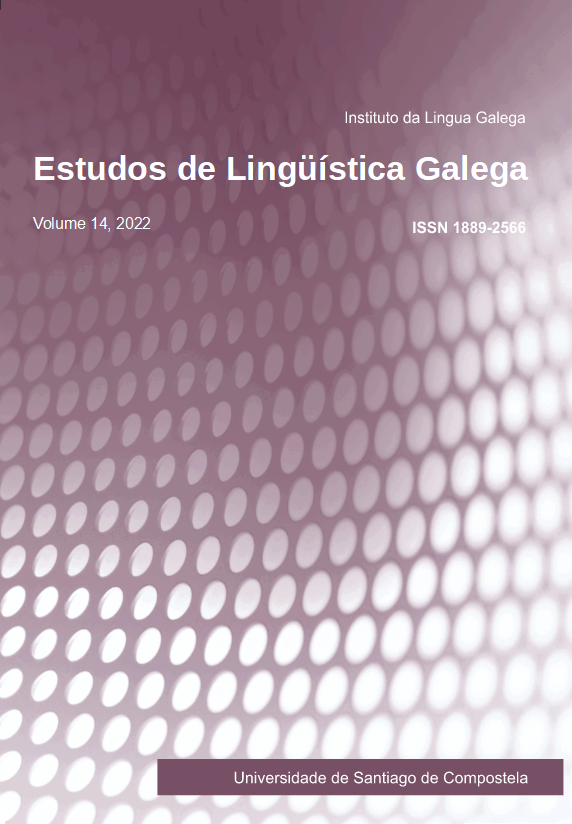Yo no soy más que un artista. Discursive ethos in Castelao’s 1931 speech “Defensa do idioma galego”
Main Article Content
Abstract
Keywords:
Article Details
References
Amossy, Ruth (2000): L´argumentation dans le discours. Discours politique, littérature d´idées, fiction. París: Nathan (citamos por la traducción de Estela Kallay).
Amossy, Ruth (2005): “Da noção retórica de ethos à análise do discurso”, en R. Amossy (org.), Imagens de si no discurso. São Paulo: Contexto, 9-28.
Beramendi, Justo / Xosé Manuel Núñez Seixas (1996): O nacionalismo galego. Vigo: A Nosa Terra.
Bermúdez, Nicolás (2009): “El ethos: génesis y operatividad de la noción”, en El discurso del orden. Universidad de Buenos Aires. Tesis de maestría inédita, 91-138.
Castelao, Alfonso (1996): “Defensa do idioma galego”, en Henrique Monteagudo (ed.), De viva voz. Castelao: conferencias y discursos. Santiago de Compostela: Fundación Castelao, 105-109.
Charaudeau, Patrick / Dominique Maingueneau (dirs.) (2005): Diccionario de análisis del discurso. Buenos Aires: Amorrortu.
Chilton, Paul / Christina Schaffner (2000): “Discurso y política”, en Teun A. van Dijk (comp.), El discurso como interacción social. Barcelona: Gedisa, 297-330.
Courtine, Jean Jacques (1981): “Analyse du discours politique (Le discours communiste adressé aux chrétiens)”, Langages 62, 5-128 (citamos por la traducción de María del Carmen Saint-Pierre).
Goffman, Erving (1970): Ritual de la interacción. Buenos Aires: Tiempo contemporáneo.
López, María Pía (2006): “Bergson, el vitalista”, en Henri Bergson, Materia y memoria. Buenos Aires: Cactus, 9-22.
Maingueneau, Dominique (2002): “Problemas de ethos”, Practiques 113/114, 55-67 (citamos por la traducción de M. Eugenia Contursi).
Maingueneau, Dominique (2005): Discurso literario. São Paulo: Contexto.
Marafioti, Roberto (2007): “Discurso parlamentario: entre la política y la argumentación”, en R. Marafioti (coord.), Parlamentos: teoría de la argumentación y debate parlamentario. Buenos Aires: Biblos, 93-127.
Monteagudo, Henrique (2000a): Alfonso R. Castelao. Santiago: Xunta de Galicia. Monteagudo, Henrique (2000b): Castelao. Defensa e ilustración do idioma galego. Vigo: Galaxia.
Verón, Eliseo (1987a): “Cuerpo y metacuerpo en democracia audiovisual”, Après 293-294, 32-35.
Verón, Eliseo (1987b): “La palabra adversativa. Observaciones sobre la enunciación política”, en AA.VV., El discurso político. Lenguajes y acontecimientos. Buenos Aires: Hachette, 13-26.


